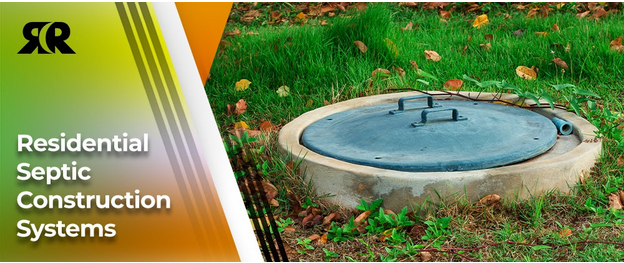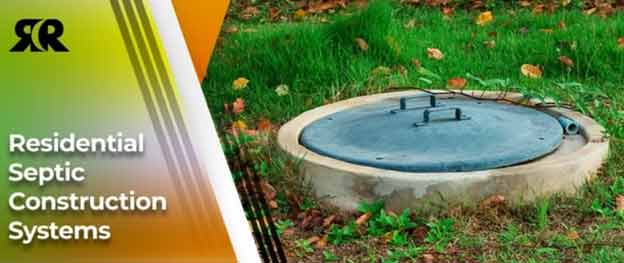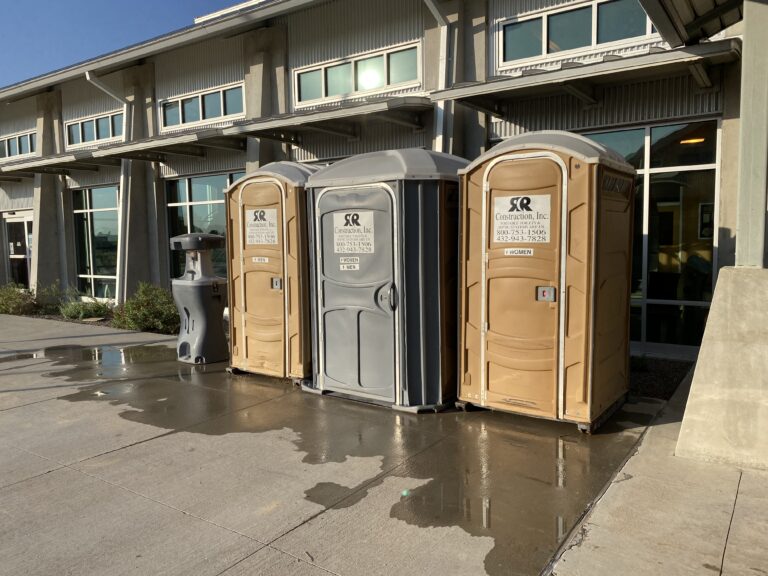A properly built and maintained septic system can survive decades, if not properly maintained, it can fail in a matter of years.
Healthy septic systems aren’t all that expensive to maintain, but a completely failed septic system can prove to be very costly. It’s crucial to understand how a septic tank works.
Understanding how a residential septic system works and how it can fail is the first step in proper maintenance. The majority of septic systems fail due to poor design or upkeep. Some soil-based systems (those with a drain field) are built on locations with poor or inappropriate soils, steep slopes, or high groundwater tables. Hydraulic failures and pollution of neighboring water sources are possible outcomes of these situations.
Solids in the septic tank can migrate into the drain field and block the system if periodic maintenance is not performed, such as pumping the tank every three to five years.

Septic System Clean Out-Understanding The Checklist
A properly built and constructed septic system simply requires periodic ‘pumping’ to remove sludge and scum from the tank. However, if you don’t understand how a septic tank works, you could end up harming or even destroying the system.
- Waste that takes a long time to disintegrate (or does not decompose at all) is discharged down drains. Cigarette stubs, diapers, and coffee grounds are all common sources of contamination.
- Garbage disposers might send too much solid trash into the system if they are used frequently.
- Washing machines spew lint from synthetic fabrics. Bacteria in the tank and the drain septic field are unable to degrade it.
- Bacteria are killed by household chemicals such as disinfecting cleansers and antibacterial soaps. The majority of systems can handle occasional usage of these goods, but the less you use them, the better.
- Too much wastewater flushes out the tank too quickly in a short amount of time.
- The ability of microorganisms to break down the waste is harmed by too much sludge. Sludge that accumulates in the drain field might also overflow.
- Scum or sludge clogs holes in pipes. Tree and shrub roots can choke and ruin drain fields.
- Compacted soil and gravel obstruct wastewater seepage and starve bacteria of oxygen. Cars driving or parking on the drain field are a common source of this.
Signs That It’s Time To Empty Your Septic Tank
There are a few obvious signals that your home’s septic tanks need to be emptied that you should be on the lookout for:
- Your toilet and/or washing machine begin to run slowly and sluggishly. If your toilet is suddenly having difficulties flushing properly, you should inspect your septic tank right away.
When waste from your home is flushed through your pipes and into your septic tank, it separates as soon as it reaches the tank. Everything that can be liquefied will find its way to the drainage hole. Everything that is heavy sinks to the bottom of the tank and becomes sludge.
To avoid significant problems, you should empty your tank when the sludge level rises to the point where it threatens to block it. Slowed toilets and drains in your home are a clue that your tank is near to becoming full.
- When you can see overflow around the surrounding surface outside, this is another more evident and serious symptom that your tank needs to be emptied.
If you find yourself in this awful scenario, you will be acutely aware because there will almost certainly be a strong stink. If you notice a backup on your lawn or in your home’s drains, it’s a sign that the tank is clogged.
What Happens If Your Residential Septic Tank Isn’t Emptied?
Your waste will eventually overwhelm your septic system if you do not empty your septic tank. Solids accumulate with time, and your tank’s capacity is limited. You’re at risk of a sewage backup as a result of this.
Is It Necessary To Drain Septic Tanks?
Your septic tank should be emptied every three to five years, regardless of the sort of septic system you have. Septic tanks are built such that the heavier contents settle at the bottom. If the sludge layer becomes too thick, solid waste will seep into the drain field or leach field. This can lead to blockages, which prohibit liquid from filtering into the system.
Depending on the size of your septic tank and whether or not you use a garbage disposal, you may need to have it pumped more frequently. This service will not only maintain your septic tank clean and healthy, but it will also allow you to discover any problems before they become a serious issue. Maintaining a routine might assist you in determining when your tank should be emptied.
Conclusion
If you’re planning to install a residential septic construction system or you want cleaning or pumping or any other kind of septic tank services, you can rely on the experienced professionals at RR Waste & Septic, Inc.
We specialize in residential septic tank installation, cleaning, pumping, and maintenance. Every member of our team has received thorough training and possesses a plethora of knowledge. Plus, we offer affordable quotes.
Call at 432-943-7828 to discuss your residential septic system requirements.


